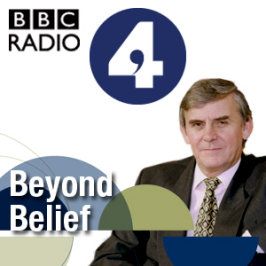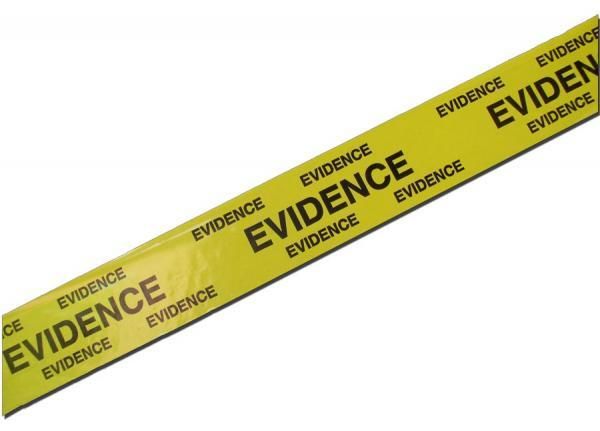‘But where’s your evidence?!’ Whether it’s amidst heated debates over climate change, or the claims and counter-claims of the Leveson inquiry, the cry for evidence is a regular part of our everyday existence. After the dust of a media frenzy has settled, we all understand the need for evidence when making assertions and forming opinions. And yet often when people turn to think about Christianity, they assume that we’re the only ones not talking about evidence. In the realm of ‘religion’, suddenly believing something becomes not about evidence, but about that mysterious substance called ‘faith’. Ever heard a variation of this: ‘that’s easy for you to say, if only I had your faith’?

Given all that, you may find it interesting to have a listen to the latest episode of Radio 4’s ‘Beyond Belief’ programme, downloadable here. This week host Ernie Rea was dialoguing on whether modern physics leaves any room for God, and his guests were Dr John Lennox, Professor of Mathematics at the University of Oxford and a Christian, Dr Usama Hasan, Senior Lecturer at Middlesex University and a part time Imam, and Dr Mark Vernon, Honorary Research Fellow at Birkbeck College, London who has degrees in physics, theology and philosophy and who is agnostic.
What I found particularly refreshing was hearing John Lennox, on national radio, highlight that the so-called New Atheists have done a jolly clever thing in convincing the general public that faith is believing where there is no evidence. In doing so they portray science as this great grown-up champion who’s thankfully come along to defeat ‘faith’, wielding his powerful weapon of rationality, and thus finally liberate us from our primitive ways. In their view faith just stands there, blindfolded to the light of reality, looking both feeble and horribly naive. Consequently the media always introduce the debate as ‘faith vs science’, with ‘believers’ being squared against those who ‘believe in science’, as if the two were opposing.
As Lennox tried to make clear, this is a completely false dichotomy. Science is essentially, as far as I understand it, the act of observing the world and trying to come up with explanations based on what we’ve observed. In that sense, it’s neutral. Like the court judge, science sits and listens and watches before then making a judgment call. Therefore surely the real fight is ‘naturalism vs theism’ and the grounds of this battle must always be evidence; does a God-shaped worldview or a God-less worldview best fit the presenting evidence we observe?
As part of the programme it was an unusual treat to hear the testimony of a man who’d moved from a naturalist position to becoming a Christian. However when Rea asked the man what would happen if some theory were to be discovered that ruled out the possibility of a God, he then explained that his own personal experience of God would become the grounds for him continuing to believe. Now, I don’t meant to in any way question that man’s experience of God, and I certainly do think we should be more ready to describe how God is working in us, but it was interesting that this answer was then picked up by Vernon as an example of believers not believing because of evidence but because of subjective experience. It seems to me, in line with what Lennox was explaining, that we’re missing a massive opportunity to demolish an unhelpful stereotype of Christianity, disseminated in part by New Atheism, by not pointing to the evidence for our faith.And that’s not just something John Lennox seeks to do, it was something the first-century Christians sought to do too. For example, at church on Sunday we were looking at the penultimate chapter of John’s account of Jesus’ life, death & resurrection (this could get confusing: I mean the apostle John, not Mr Lennox!). John couldn’t have been clearer about the fact that he understood Christianity to be based on evidence. He wrote:
‘Jesus did many other miraculous signs in the presence of his disciples, which are not recorded in this book. But there are written that you may believe that Jesus is the Christ, the Son of God, and that by believing you may have life in his name.‘ (John 20:30-31, NIV)

Clearly John believed that what he witnessed was observable evidence that essentially pointed to a scientific conclusion. This evidence was the life, death and resurrection of the man, Jesus of Nazareth, i.e. stuff that happened in history that real people observed. And the conclusion that John believed this evidence pointed to was that this Jesus is the Christ, i.e. the divine rescuing king from God that the Jewish Scriptures had promised. Consequently Christians should remember the baddie isn’t science; in fact you could say all Christians are scientists, in that we are drawing conclusions based on observable evidence. Every worldview of the world has to take into account the person of Jesus of Nazareth. What do you make of him?
And as John writes, he’s not simply concerned with the true identity of a historical person. His claim had more significance than that: by believing in this person or, to put it in less tainted terms, by putting our trusting upon him, this person brings us life. This is defined elsewhere in John’s account as knowing God himself (John 17:3). In other words, God has acted in his world to do something incredible through Jesus: to allow people to know him. No wonder John wrote it down and sought to communicate it to others. No wonder Christian believers have faithfully ensured this document has been accurately passed down through history over the two thousand years since it was written.
So when Lennox stated that he believed there was a God because of evidence, I longed for Rea to get him to explain: ‘Come on, this man’s claiming he’s got evidence for God, don’t you want to hear him out?! If not because you’re a human being with a mind and a desire to explore, then at least to try and mock him!’ But Rea didn’t push him, and bizarrely (given a ‘serious scientist’ had just claimed to know God!) the conversation simply moved on.
All in all it’s great to hear these issues being discussed in the public domain, albeit in twenty-eight minutes. It did make me wonder why is this a ‘Radio 4 issue’, rather than something you might expect on Radio 1. That’s more an observation of the obvious rather than a criticism of the programmers at BBC: religion and faith just don’t just seem to be often on the table in youth culture. Would that be different if we were more forthcoming with our evidence?
I’d love to hear your thoughts – why not take a moment to comment? Interested in hearing more from Lennox? His books are available here.